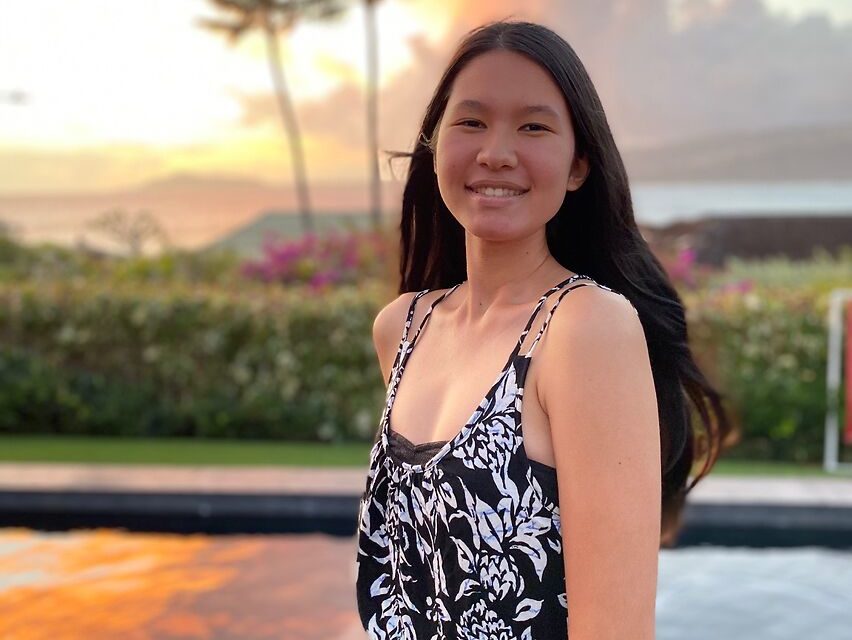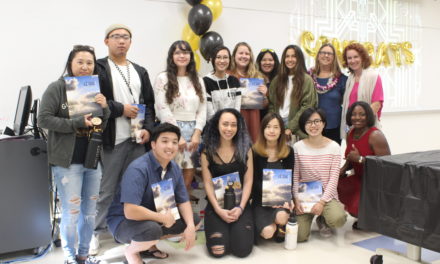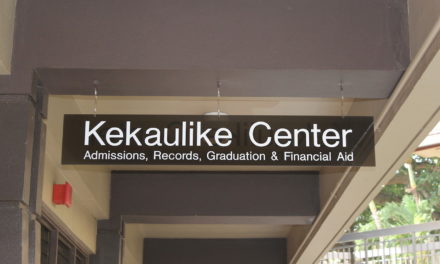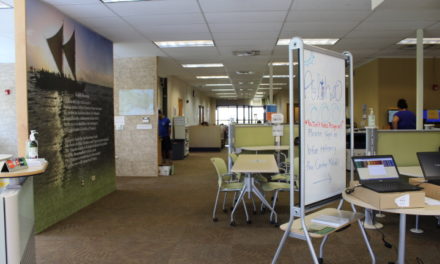Sophia Daniel was only 16 years old when she first developed her idea for Bill SB2290. She is 19 now, and her bill is currently passing through the Hawaiʻi Senate. (Photo courtesy of Sophia Daniel)
By Cameron Enomoto | Staff Writer
Sophia Daniel is a second-year student at KCC and has found a way to make a positive change within the local community. Daniel was recently able to reintroduce her bill, SB2290, after facing setbacks over the last two years due to Covid. Her bill — which is currently making its way through the state Senate — will ban, in Hawaiʻi, all use of microbeads in personal care products and non-prescription drugs.
She first thought of the idea when she was in her junior year at Kaiser High School. The class she was enrolled in, Global Politics, required students to identify a global issue and come up with a solution. Daniel decided on plastic pollution as her issue and through extensive research she was able to narrow down the problem to microbeads.
“Most people overlook microbeads, but it is in fact an issue event though it’s so small,” said Daniel, an English major. “I thought it would be a good idea to try to make a local impact by creating a bill.”
Microbeads may seem to disappear after use, though they actually pass through water filtration systems because of their size. As a result, many of them end up in the ocean. Once in the ocean, the microbeads begin to absorb dirt and bacteria. When marine organisms ingest a large number of microbeads, they will burst and kill the organism immediately. Even for species that ingest a small amount, it still has a negative impact because humans could possibly ingest it. Ultimately, microbeads harm marine organisms, the marine ecosystems, and humans.
To solidify her idea, Daniel reached out to Sen. Michelle Kidani (D., District 18) and was then forwarded to former Sen. Laura Thielen’s (D., District 25) office where the assistant was able to help her draft a bill. Once the finalizations were complete, the bill was introduced in January 2020, and it was passed through the Senate and the House of Representatives.
“It almost made it to actually becoming a bill, an actual law, until Covid hit,” said Daniel. “Legislature had to shut down after that because it wasn’t safe to be gathering.”
Despite not passing the first time, Daniel decided to wait until Covid accommodations were made before contacting Sen. Chris Lee (D., District 25) in August 2021. She found out in December 2021 that the bill was going to be reintroduced.
As of now, it has passed its third reading and it is classified as an SD1, which means it passed through the first round in the Senate. It will then be passed on to the House of Representatives if it is approved, though the date of the next vote has not been announced yet.
Plastic is not degradable and does not break down at all. Over the span of hundreds of years, plastic will only break down into smaller pieces.
“It’s important to recognize what you’re purchasing and where you’re purchasing from,” said Daniel.
She recommends shopping from businesses and brands that have products without microbeads. R Planet, locally owned and based on Oʻahu, is a zero-waste business focused on sustainability in social, economic, political, and environmental aspects. Their products are either made from bamboo, various woods, glass, or metal. The link to their website can be found here.
Through her experiences, Daniel has learned to not give up and take advantage of opportunities where you may be able to make a difference.
“Legislature can be a difficult process,” Daniel said, “but you can reach out to people and find ways to advertise your ideas. You can always try another year if your bill doesn’t pass the first time.”






